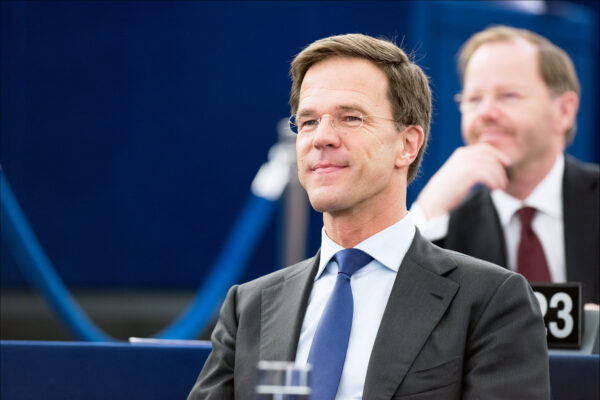
Freedom Party leader Geert Wilders may have just dictated the terms on which the Dutch election next year will be fought — and under which his rival, the incumbent prime minister Mark Rutte, is more likely to be prevail.
I wrote earlier this year that echoes of America’s presidential election could be heard in the Netherlands: Wilders shares an under-siege rhetoric and unceremonious style of politics with Donald Trump; Rutte, like Hillary Clinton, celebrates the country the Netherlands is, rather than it used to be, and represents consensus and a respect for political norms.
Those differences were driven home last week, when Wilders was found guilty of inciting discrimination by a panel of three judges for promising “fewer Moroccans” in the city of The Hague.
“Sick country”
Wilders responded to his conviction by saying that the Netherlands had become a “sick country” in which the freedom of speech is under threat. The judges who ruled against him were “Freedom Party haters,” he alleged. According to Wilders, “nobody” trusts the judiciary anymore.
Rutte took issue with those recriminations. “The rule of law functions well,” he maintained.
This is not unfamiliar territory for Rutte. In the last two election campaigns, he also sang the Netherlands’ praises and asked voters to look to the future, even if austerity measures his governments enacted made life more difficult for them in the short term.
At both times, he won the election. Wilders fell short.
Neck and neck
The two men are once again neck and neck in the polls. For the first time, Wilders’ nationalist party could become the single largest with up to 29 out of 150 seats in parliament. The liberals are projected to lose fifteen of their forty seats and place second.
Doom and gloom put Trump over the edge and it may yet give Wilders his best election result to date.
But Dutch voters are more likely to switch parties than Americans and Rutte doesn’t need to place first to win. All he needs to do is remain the largest party after Wilders. That would give the liberals a mandate to form a coalition government with parties close to the center, which have all ruled out making Wilders the prime minister.
